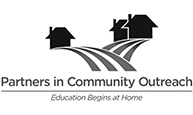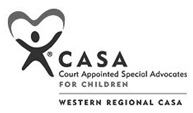
Reflective Supervision/Consultation
What is Reflective Supervision/Consultation?
Reflective supervision/consultation (RSC) is an ongoing professional development practice for the infant and early childhood workforce. Through regularly scheduled reflective sessions, the professional and their supervisor/mentor/consultant establish a collaborative and reflective alliance. RSC supports the professional in addressing the challenges of their work and leads to better service to families. The relationship, in which the professional feels seen, heard, and understood, provides a model for strengthening relationships and promoting the growth and development of babies, young children, their parents, and caregivers.
Concretely, RSC provides a regular opportunity for a professional to talk about their work and the impact their work has on themselves and others. RSC fosters critical self-awareness and the ability to consider multiple perspectives, all of which enhance an organization’s implementation of a relationship-based culture.
Important Components of Reflective Supervision/Consultant
- Forming a trusting relationship between supervisor and practitioner
- Establishing consistent and predictable meetings and times
- Asking questions that encourage details about the infant, parent, and emerging relationships
- Listening
- Remaining emotionally present
- Nurturing/supporting
- Applying the integration of emotion and reason
- Fostering the reflective process to be internalized by the supervisee
- Exploring the parallel process and allowing time for personal reflection
- Attending to how reactions to the content affect the process
Reflective supervision is a shared exploration of the parallel process. That is, attention to all of the relationships is important, including the ones between practitioner and supervisor/mentor/consultant, between practitioner and parent, and between parent and infant/toddler. It is critical to understand how each of these relationships affects the others. Of additional importance, reflective supervision/consultation relates to professional and personal development within one’s discipline by attending to the emotional content of the work and how reactions to the content affect the work. Finally, there is often greater emphasis on the supervisor/consultant’s ability to listen and wait, allowing the supervisee to discover solutions, concepts, and perceptions on his/her own without interruption from the supervisor/consultant.
Reflective supervision/consultation may mean different things depending on the program in which it occurs. Reflective supervision/consultation may be carried out individually or within a group. A reflective supervisor or consultant may be hired/contracted from outside the agency or program, and may be offered to an individual or group/team in order to examine and respond to case material.
How Does Reflective Supervision/Consultation Differ from Administrative Supervision?
Administrative supervision relates to the oversight of federal, state, and agency regulations, program policies, rules and procedures. Elements of administrative supervision may include:
- Hire
- Train/educate
- Oversee paperwork
- Write reports
- Explain rules and policies
- Coordinate
- Monitor productivity
- Evaluate
What Is the Link Between Reflective Supervision/Consultation (RSC) and Endorsement?
RSC is good for the workforce. It offers a space for professionals to consider the impact of their work on families and on themselves. It provides emotional support to the practitioner so that they, in turn, can offer that support to families so that families can offer it to their infants and young children.
RSC is a requirement for most categories and a strong recommendation for all categories of the Infant Mental Health Endorsement credential; it offers a reflective “relationship for learning” through which professionals integrate IMH knowledge and skills into relationship-based practice.
RSC is linked to Endorsement so that more professionals ask, “What about the baby?”, which places the experience of the infant/young child at the center of the work.
The IMH Endorsement credential provides best practice standards that define the qualifications for RSC providers. RSC qualifications ensure that providers participate in professional development (initial & ongoing) and are supported by their own RSC.
Reflective Supervision Provider Requirements
Three categories of Endorsement require Reflective Supervision to apply for Endorsement and for annual renewal. These categories are: Infant Family Specialist (IFS), Infant Mental Health Specialist (IMHS), and Infant Mental Health Mentor – Clinical (IMHM-C). Each category has specific requirements, including who is considered a qualified provider.






